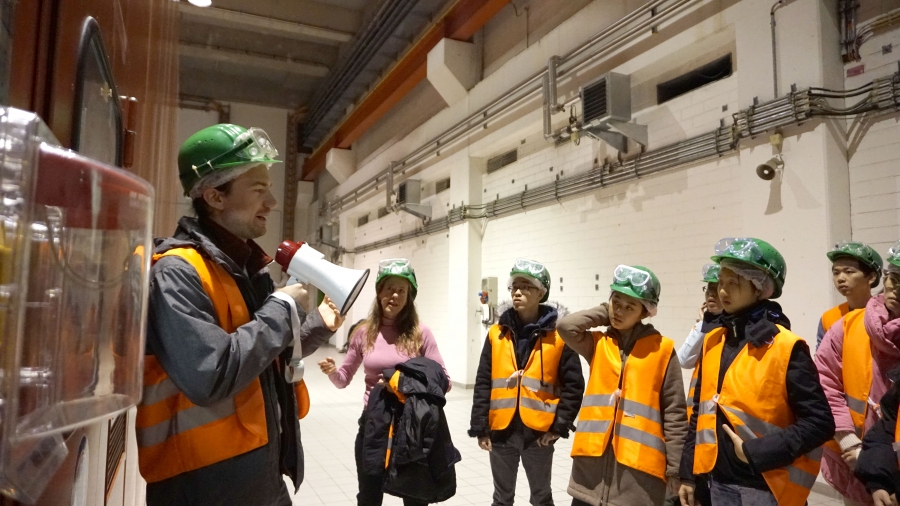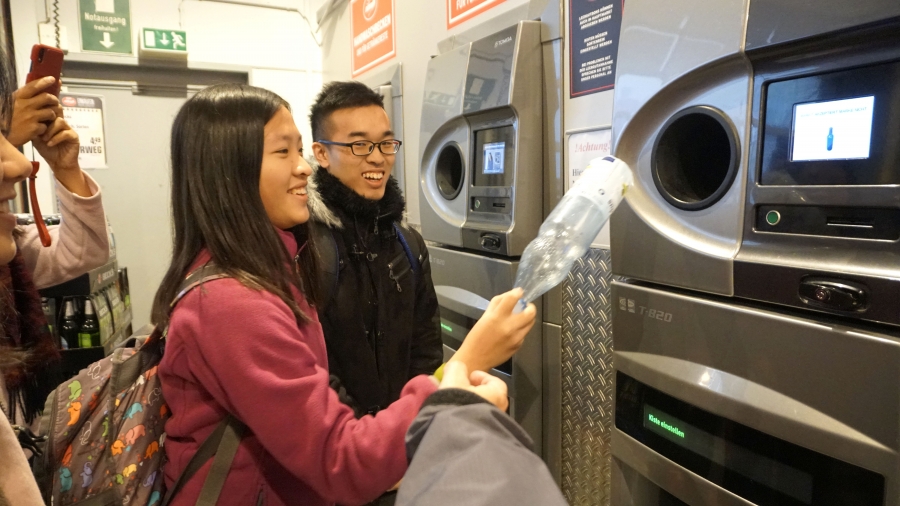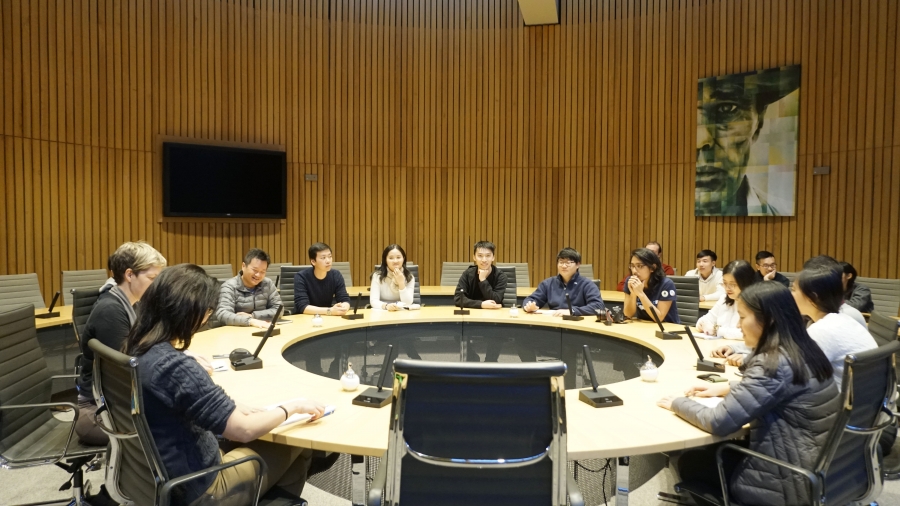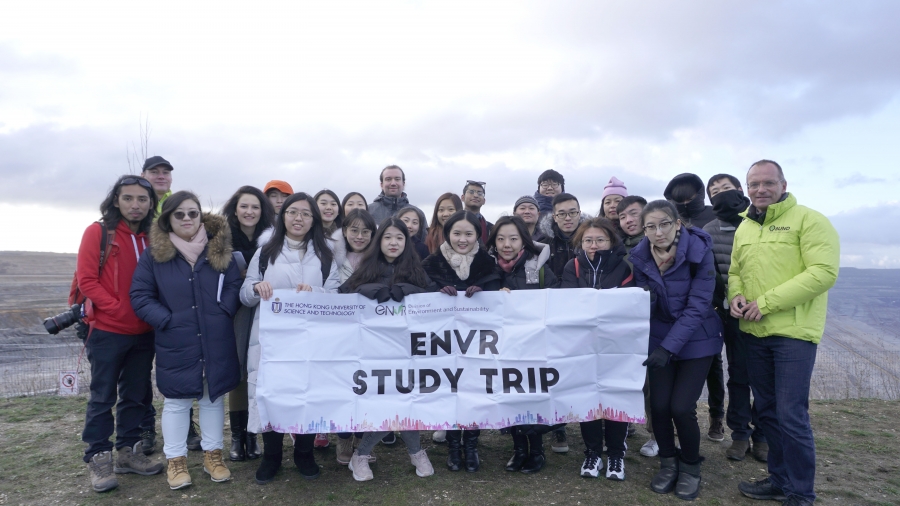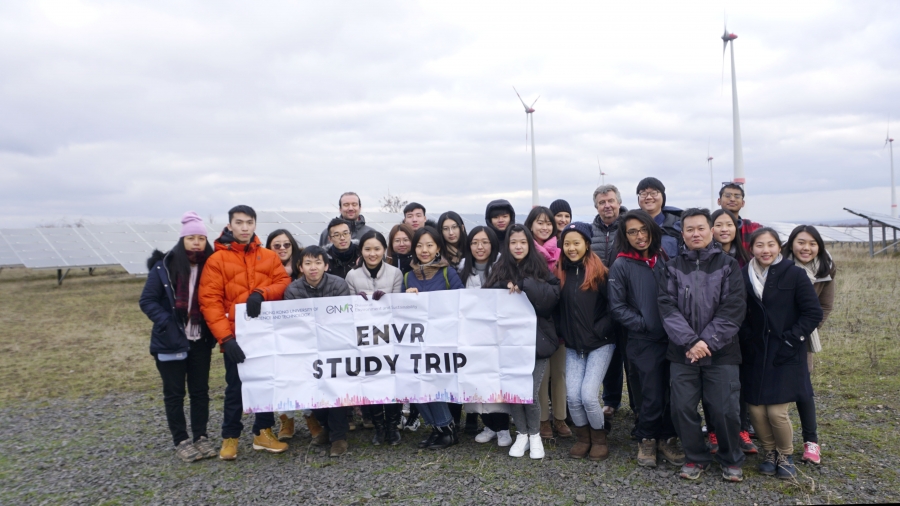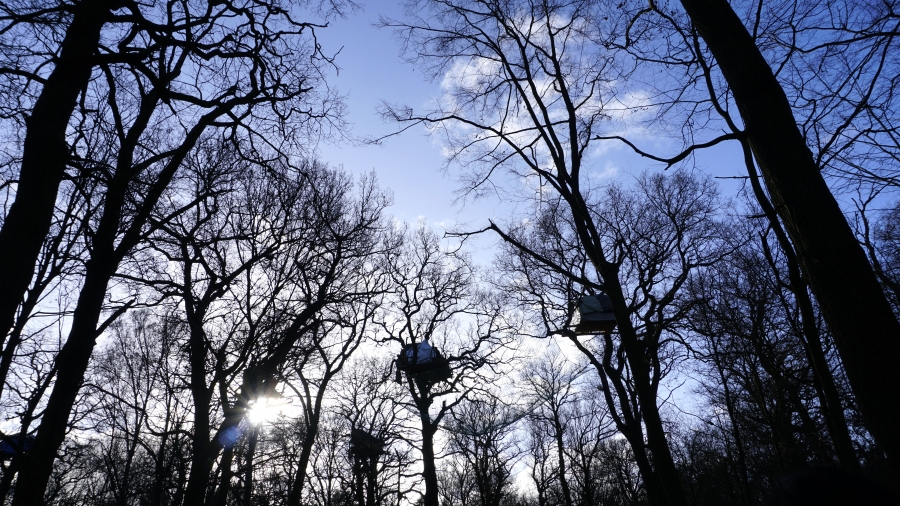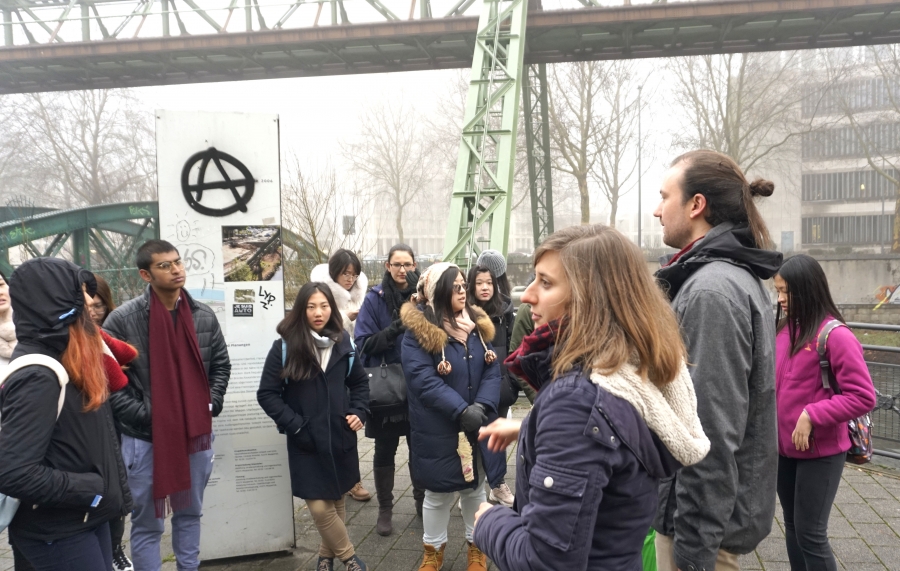Germany, the biggest economy in Europe, is highly industrialized and undoubtedly facing many environmental problems. 9 students of Environmental Management and Technology Program (EVMT) and 13 students from MSc / PGD in Environmental Science and Management Program, led by Dr. Meike SAUERWEIN, visited Germany from 5 – 12 January 2019 to understand the environmental challenges faced by Germany and how German Government and non-governmental sectors tackle the issue.
The trip covered a wide range of environmental issues in Germany including waste management, renewable energy, circular economy, policy making and research.
Students visited the incineration facility of Cologne to understand how German manages waste and turns garbage into energy which is a good reference for Hong Kong.
Plastic bottle recycling rate is still low in Hong Kong despite that Hong Kong Government and green organizations have promoted recycling since early years through various channels. In Germany, citizens are encouraged to recycle plastic bottles by deposit system. Students were brought to a supermarket to see how it works. When German put an empty recyclable bottle into a bottle collection machine, they will be rewarded with a deposit.
BUND (Friends of the Earth), a German environmental NGO, led a tour for the students at the Open Cast Lignite Mine Grazweiler in Düsseldorf. The mine is 48km2, around 60% the area of Hong Kong Island, and 210 meters deep. It mines 35 million tonnes of lignite per year, generating a third of the CO2 emissions in Germany. The mine has been operated since late 1970s and no environmental protection measures were in place since then. RWE even plans to expand the mine with the clearing of an ancient forest, the Hambacher Forst, forgoing the area’s biodiversity. Many locals protest against the expansion plan to protect this natural habitat.
Using renewable energy is effective in reducing carbon emissions. Students visited a renewable energy company Juwi which focuses on solar and onshore wind energy. Their office is self-sustainable and generates more energy than it uses.
Policymaker plays a vital role in setting and implementing environmental protection policy. Students had an insightful discussion with politicians of Green Party at the Federal State Parliament to learn to examine the obstacles and challenges from the perspective of policymaker.
The Wuppertal Institute, set up in 1991 to study global climate change in depth, undertakes research with focus on the resources, climate and energy related challenges and their relation to economy and society, and develops models, strategies and instruments for transitions to a sustainable development at local, national and international level. Students attended the presentations and discussions on energy transition, circular economy and recycling delivered by researchers of the Wuppertal Institute and understood the importance of research in coping with environmental issues.
To know more about what students gained from this trip, please read the sharing of Yoyo LEUNG here.

